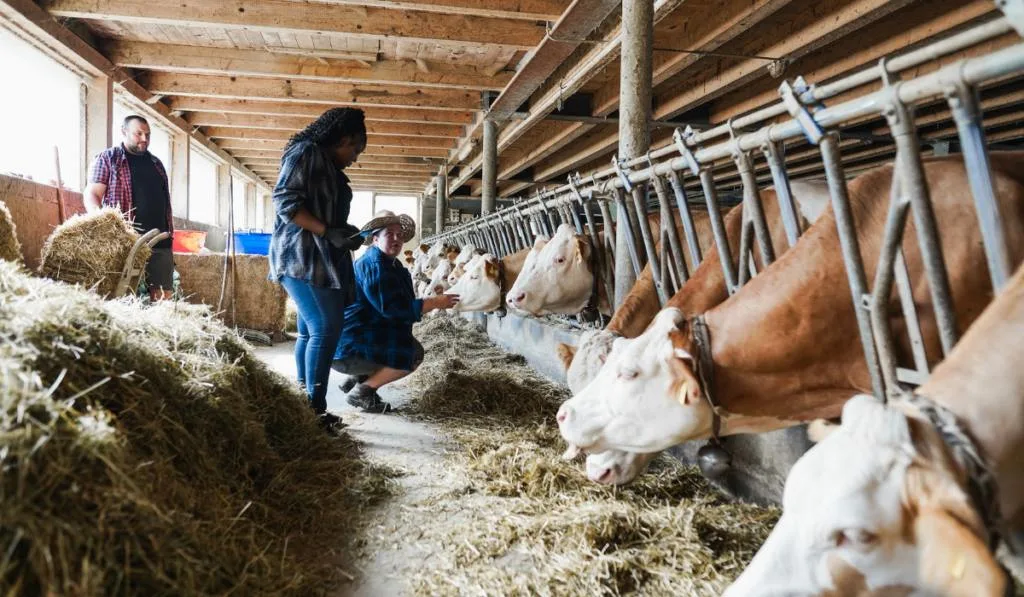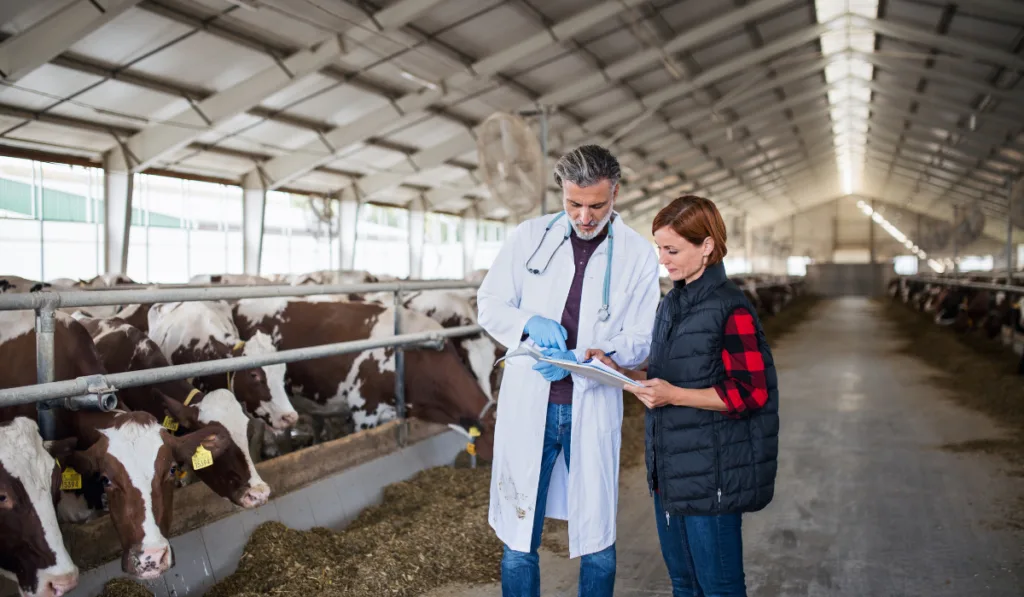New farmers and farmers with generations-old operations know the importance of keeping accurate farm records. The better your records are, the easier it is to track your successes and where you need to make corrections.
A lot of farms struggle financially because they fail to run things like a business. For example, they eyeball how much feed they need and fail to track their vehicle and gas usage. All these things will get you in trouble.
If you want your farm to run like a well-oiled machine, you must keep organized books and records showing where you need to improve. In many cases, farms involve several people to stay afloat, so records are a fantastic way to keep everyone on the same page.
We’ve compiled a list of some of the vital records you should keep on your farm. Whether you’re starting out or looking for ways to get better, here are some of the most critical types of farm records.

Table of Contents
Daily Logs
One of the most essential things you should do is start to track what you do each day. Farmers are extremely busy and hardworking. There’s always something to be done, and the work doesn’t stop when all those white collars leave their offices. Most farmers pull very long hours.
The biggest issue is not knowing where you spend your time. Keeping a daily log tells you what’s sucking up most of your work hours. It comes in handy when deciding if you should hire a farmhand or invest in some new equipment to make things faster.
Start tracking how many hours you’re spending, where you went, who was there, and the progress. It’s the best way to log how long improvement projects take, and it will help you eliminate waste doing things that don’t deliver much bang for your buck.

Inventory
Do you know how much feed you have for your animals and when you need to buy more? What about gasoline, and how many farm tools do you have?
Keeping a detailed inventory is the best way you can save money on a farm. Moreover, it prevents you or anyone else from making wasteful purchases.
An inventory also helps you plan so you can get better deals on the items you need to buy regularly. Feed is a perfect example. If you’re always buying feed when you run out, you’re a slave to the prices dealers or retailers charge. When you keep an inventory, you have more flexibility to buy feed when it’s on sale.
Start keeping an inventory that tracks what you have, when you need to buy new things, and who uses what.

Feeding Schedule
Unfortunately, many farmers keep the most important information about their farms in their heads. So, if they get sick, old, or need to go on a vacation, other people have no idea how to keep the farm afloat.
Build a better operation for your farm by keeping records that other people can read and understand. For example, you should maintain a livestock feeding schedule so other people, whether they’re family or employees, know what to do.
Make sure everyone logs when the animals were fed to help others know when the next feeding should be.

Employee Logs
Employees should have formal records on your farm to protect you and themselves. For example, an employee log should include work schedules, whether anyone was late, responsibilities, pay, phone numbers, etc.
One of the main reasons to keep employee logs is for farmers to track precisely how many people they need on the farm. You can notice a difference between having four workers and five and decide which works better for you.

Vehicle Maintenance
Every farm has vehicles. Larger farmers have heavier equipment and more trucks, but virtually every farm has at least one or two pieces of equipment that require mechanical upkeep.
Too many farms have dilapidated trucks, plows, and tractors on their property because they failed to either maintain them or sell them before they became unusable. A vehicle maintenance log avoids this problem.
A vehicle maintenance record gives you information about oil changes, scheduled maintenance for the future, and completed repairs. It saves you money by preventing unexpected repairs because you missed too many oil changes or some other required upkeep.

Planting Schedules
Seasoned farmers have things like planting schedules engrained in their brains. However, newer farmers typically need detailed schedules, so they plant seeds, water, irrigate, fertilize, and take care of other tasks on time.
With farming, dates are crucial to success. It would help if you sowed your seeds at a particular time to increase crop yields and make your efforts worthwhile. Thankfully, there is plenty of information available online where you can find the necessary information. However, if you don’t keep a planting record, you leave too many things up to chance.
Delivery Schedules
Larger farms have a lot of moving parts. Something is always being delivered to the farm, like feed, seeds, tools, etc. Likewise, there are always deliveries going out. For example, if you’re a dairy farm, you likely have daily pickups for milk, eggs, or whatever else you’re producing.
Make things easier for everyone working on the farm by keeping a pickup and delivery schedule available to anyone working on the farm. Please post it in a visible location, so everyone knows where to be and when.

Crop Yields and Deadstock
Crop yields are another essential type of farm record every farmer should be keeping. You should know how many crops you harvest and then go back and compare to expected yields, what you paid for seeds and other supplies, and what your bottom line is.
This also isn’t just for crop farms. Every farmer should know whether they are making a profit. You should compare the revenue you get from sales against your input costs. This will help you streamline expenses in the future.
Homesteaders or hobbyists should know how much they can expect to spend for a specific result.

Medication Records
If you have a lot of animals on your farm, you’ll eventually have several medical or special care routines to follow. Typically, the larger the animal, the more involved you’ll be. For example, you could administer prescription medicines to livestock, and you’ll want to know when and how much to give each animal.
Of course, prescription medicines are powerful drugs. It’s essential to keep accurate records to give your animals the right amounts of medicine.

Vendor Records
Knowing your business partners and which ones make you the most money is important. Track how much of your crops or other products go to each vendor and other details about the relationship.
Managing relationships across farming generations is one of the biggest challenges in family farm operations. Too often, detailed information goes missing when someone retires. Instead, keep track of who you sell to, how much you sell, and whether there is an opportunity for the relationship to grow.

Contracts
Of course, you should keep detailed records of any contracts you sign while running your farm. Whether it’s a land lease, vehicle loan, or any other contract, you need to know your obligations and what other people owe you.
These contracts should be kept in a safe location, like with a lawyer, and you should always have more than one copy of each record.
Final Thoughts
As farms grow, they should keep more records to help monitor performance and profitability. Records keep costs lower and ensure smooth operations no matter who is working on the farm.
If you can, keep your records digitally. It will better guarantee that they last, and more people can access them. Anything you can track that impacts your operation should be taken down. Accurate records increase your odds of running a successful farm that yields good results.
